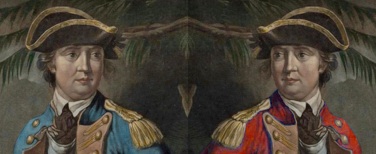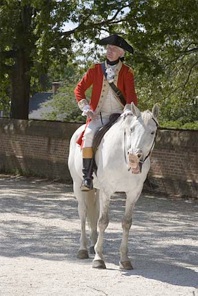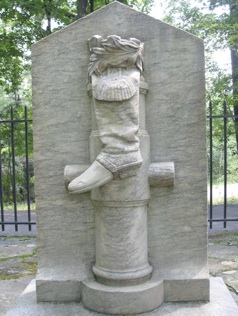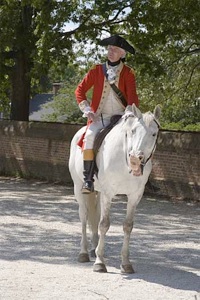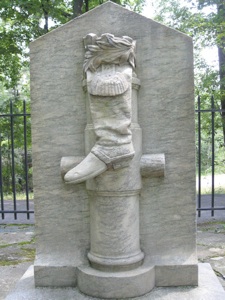by Dan Shippey &
Michael Burns
The Battle at Saratoga was one of the most important battles of the Revolutionary war, if not the most important. Without it, the victory at Yorktown would never even have been possible. An entire British army, its weapons and officers were all captured. The French, who until this time were unwilling to make any commitment to the newly declared United States, were persuaded to become our ally and sent weapons, supplies, ships and soldiers. The General in charge of the American forces was the overrated and over cautious Horatio Gates. His poor judgment and hesitance to act almost cost the Americans the battle. Fortunately, one of the officers under Gates had the understanding, skill and initiative to rally the troops and lead them to victory, even after Gates had relieved him of duty. This 34 year old General defied Gates’ orders, raced onto the field on horseback, rallied and led two different brigades, and turned the tide of the battle. During the fight he was shot in the leg. The same leg was then crushed when his horse was shot and collapsed on it. Who was this great hero of the Revolution? General Benedict Arnold, hero of Ticonderoga, hero of Valcouer Island, and America’s most infamous villain.
To say you could fill a book with theories about why Arnold betrayed his country is a bit of a joke among historians. People have in fact written several books, scholarly and speculative, venomous and sympathetic, about Arnold’s betrayal. The reasons given are many and varied. Some say that Arnold was never given proper respect or accolades by his superiors in the field and in Congress. Others feel that his pride and honor were hurt by his many court appearances, and the fact that Congress frequently failed to pay him his salary. Arnold’s new bride was a Loyalist (Tory)…perhaps she turned him against his country. It could be that Arnold had entered the war to fight for the rights of the colonist and had never intended to create an independent country. Finally, there is always the greed factor. Arnold ran up heavy debts and may have wanted the monetary rewards and honorable position of rank in the British army. None of these answers ever feels satisfactory when speaking about a man who railed after the Boston Massacre, asking if the American people were asleep, waiting tamely to be robbed of their liberty. Even if the man had written his memoirs to tell us his reasons, it could never be enough.
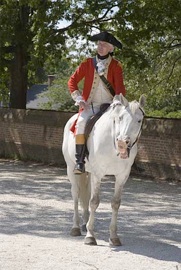
Interpreter Ken Johnston portraying Arnold at Colonial Williamsburg.
Arnold’s betrayal came as a serious and painful shock to the American cause. George Washington considered Arnold a friend and wanted to make him second in command. When Arnold’s plan to turn over West Point and even Washington himself to the enemy was exposed, Washington is reported to have said,
“Arnold has betrayed us. Whom can we trust now?"



